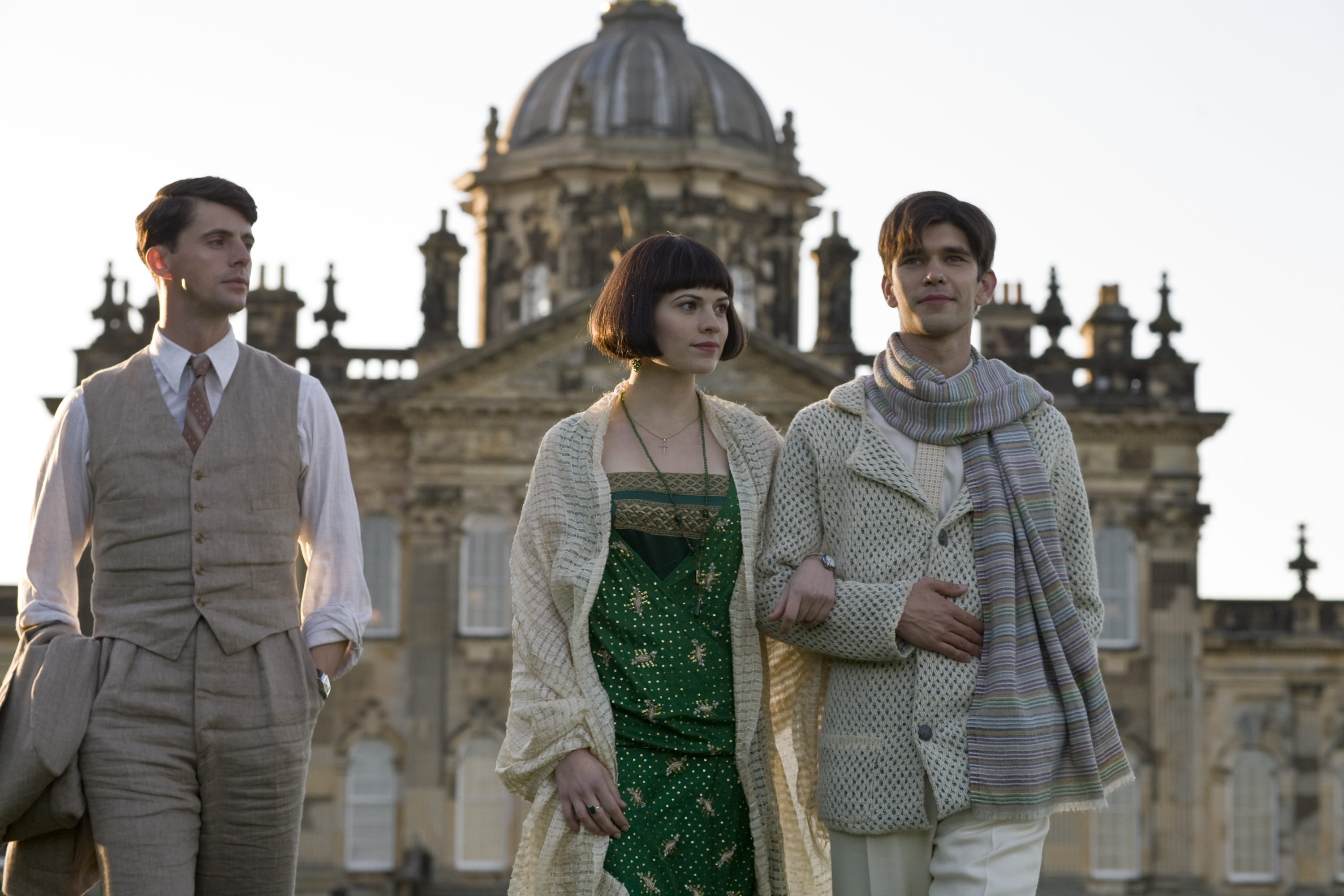|
Reviews of Recent Independent, Foreign, & Documentary Films in Theaters and DVD/Home Video
BRIDESHEAD REVISITED While other summer movies are revisiting Batman and the songs of ABBA, this British import revisits a 20th century cultural touchstone for many fans of Evelyn Waugh's widely acclaimed 1945 novel and the monumental 11-episode mini-series from 1981. Now, for the first time, the book has been adapted somewhat faithfully into a feature film. At Oxford in the 1930s, firmly middle-class Charles Ryder (played by Mathew Goode channeling Jeremy Iron's languid performance) falls under the spell of Lord Sebastian, seduced by his wealth and eccentricity. As Charles is introduced into Sebastian's world, especially to his family in their ancestral home of Brideshead, he is ensnared by their glamorous lifestyle and their ties to Catholicism, both foreign and fascinating to him. He observes a moral code that inflicts guilt and remorse, but also offers the possibility of redemption. These concepts, so important to Sebastian’s family, are at odds with the more moderate and modern Ryder. (He grew up loosely in the Church of England and is now an avowed atheist.) The first third of the film follows Waugh's novel closely, but once the story moves to a holiday in Venice, the plot becomes condensed and its details changed. A love triangle forms when Charles falls in love with Sebastian's sister, Julia (Hayley Atwell), who is not present in Venice in the original story, and here causes the rift between Charles and her brother, and not guilt-ridden Sebastian’s eviscerating alcoholism. (Sebastian is played less sympathetically by Ben Whishaw than the series' Anthony Andrews.) It’s also a given here that Charles and Sebastian are engaged in a “romantic English friendship,” as one character describes it. Another shift is the role of the matron of the estate, Lady Marchmain (Emma Thompson), who in this version takes a more central role, portraying the rigidity and domination that is only more or less revealed in the book and series. However, the film’s last third brings the story back to much of the original text as Charles plays out his love affair with Julia and the great divide occurs between them after her father, the family patriarch, returns from self-exile in Italy to pass his final days at the baronial estate.
Fans of the book and series will find comfort that the
story wasn't pared down to just one part of the novel, or that beloved
characters like Anthony Blanch and Charles' father weren't altogether
eliminated, albeit they have been slimmed down. They will also be
heartened that the great house of Brideshead looms as a character, once
again represented by Yorkshire's Castle Howard to even more stunning
effect on the widescreen. What does remain intact is the sense of a
culture that has been lost, and the
filmmakers' valiant attempt to handsomely recapture it.
David Nudo, Shelfari.com, the largest social networking site for book
lovers
|

